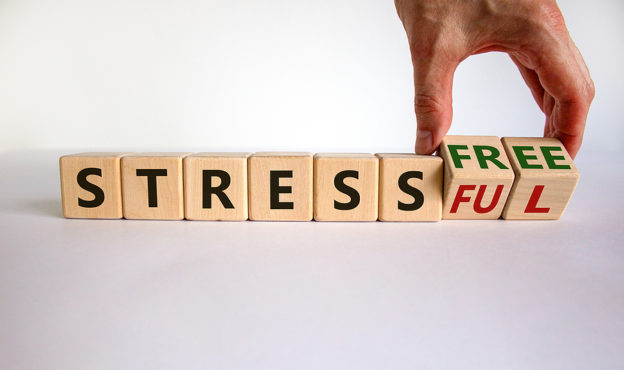How to handle uncertainty
After a year like 2020, we all know firsthand just how stressful uncertainty can feel. We humans crave routine and predictability. So when our world gets shaken up by things, we may feel an increase in mental pressure. Too much stress and worry and we can end up overwhelmed and seeking an escape hatch in alcohol, drugs, shopping, or anything else that we value as a way to relax or shut off the noise. But we all know that our escape hatches are more often than not unhealthy habits that can lead to even more problems for us. So how do we actually deal with uncertainty that shows up in our lives, whether it be something as huge as a global pandemic or something as small as whether we’ll get to work on time? What actually allows us to deal with life as it comes?
Here are five tips for dealing with uncertainty:
- Resistance is Futile. You don’t have to be a Star Trek fan to understand this one. If there’s something happening in your life that you don’t have control over, take a page from your Stoic forefathers and practice acceptance. Resistance doesn’t actually make anything go away or feel better, in fact, it usually makes the hard stuff feel even worse. Acceptance may sound like defeat, but it is the opposite–it is a mark of wisdom as well as a huge key to peace and happiness. You take a deep breath, say “Yeah, this sucks”, and then face it head on. Simply ceasing your frantic attempts to stop the situation or make it change frees up the energy you’ll need to actually deal with what is at hand.
- Slow Down. If you’re facing something unsettling, like a scary health diagnosis, a divorce, legal issues, or something similar, now is not the time to jump headfirst into other major life changes. Don’t try to tackle a new career (if at all possible), a big move, or take on other major life changes or you might risk quickly maxing out your mental health bandwidth.
- Notice Your Filters. As we’ve talked about in other groups, emotions make us more forceful and more biased at the same time. Dealing with life’s curveballs can quickly make even the most level-headed person over emotional, and that is almost always accompanied by negative filters. You may think things are “really terrible”, or that your spouse is being “really unsupportive”, or that everyone is just “out to get you”, but it could also be that your vision is a little skewed at the moment. Try to listen to loved ones who aren’t currently emotionally impacted–they may have a little better perspective. Remember that your negative cognitive bias is in overdrive, and to take everything you’re experiencing with at least a few grains of salt.
- Schedule Comfort. You may not need a security blanket any longer, but in times of trouble, find ways for your brain to release its death grip on your Fight or Flight panic button. Take time to take a bubble bath, go for a walk, veg out with some feel-good tv. Maybe cooking a healthy meal or doing something nice for a friend is more your speed. Whatever allows you to take a mental break from whatever stress you’re facing allows you to get some space from your emotions, and likely heightens your ability to think clearly and rationally about it when you return.
- Give Thanks. It sounds silly to stop and be thankful in the midst of a crisis, but numerous studies show that people that practice purposeful gratitude even when facing hardships are happier, more resilient, and more optimistic about the future–all of which can lead to smoother sailing through life in general. You can use a journal, an app, or just take a few moments to stop for yourself, but notice the good around you. Yes, some things will still be truly awful, devastating, and painful. Do you have your health? Do you have air in your lungs? Do you have people who love and support you? Do you have comfortable shoes? Noticing even small things can have a big impact. After all, you’ve survived 100% of your worst days so far…and this, too, shall pass.






